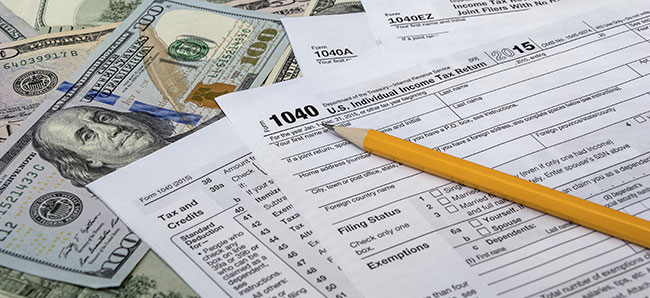Donald Trump’s public refusal to release copies of his tax returns seems like the icing on what is already a nonsensical election season. However, we here at Law 4 Small Business believe that this campaign decision is actually a key lesson to business leaders.
We won’t keep you in the dark as to our reasoning. Read on.
Why Mr. Trump Hasn’t Release his Tax Returns
The theory is that Mr. Trump refuses to release copies of his tax returns because they contain something negative that will damage his campaign (or, it could be another elaborate PR stunt). Either way, most Republican presidential candidates have released their tax returns since 1970 and Mr. Trump’s refusal to release his have created a controversial facet in an already controversial campaign. Clearly Mr. Trump’s refusal to release his tax returns is a factor in the election, and by not releasing them, he maintains a negative factor in his campaign.
So, why maintain this position? Mr. Trump said, “I am under a routine audit, and when it’s completed I will release my returns,” on Bill O’Reilly’s show on September 6th, 2016. Consider that the statute of limitations for an audit is three (3) years after a return is due or was filed (whichever is later). This means the earliest tax return that is subject to an IRS audit should be the 2012 tax year. (This is assuming Mr. Trump filed his 2012 tax return after filing appropriate extensions by the latest possible date of October 15, 2012.)
Therefore, Mr. Trump could conceivably release his 2011 and earlier tax returns, without fear of reprisals from the IRS**, and at least blunt some of the criticism directed at his failure to release his returns.
Old Tax Returns Can Come Back to Haunt You
So how does Mr. Trump’s refusal to release his tax returns have anything to do with small business owners? Simple: most small business leaders do not see how their tax returns can impact future desires. In Mr. Trump’s case, he didn’t foresee becoming a major presidential candidate. If he had, he probably would have taken care to see that his returns would provide a positive impact to his future campaign.
But what if you don’t have presidential ambitions? Do your tax returns still matter? The answer is yes! Many small business owners need their tax returns to prove their real income to a bank when qualifying for a loan. Most business bankers tell me they have met with very successful business leaders who are downright proud of not having to pay taxes. The problem is: If you didn’t pay taxes, you had “no net income.” If you have no net income, you are not eligible for an unsecured bank loan (let alone any form of line of credit with reasonable interest rates).
See how this can become be a problem?
Let Donald Trump’s campaign be a lesson to you: Even if you don’t plan on running for president, consider what your tax returns could mean to your future self. Most banks require three (3) years of personal income tax returns to prove your net income in order to qualify for a personal loan or line of credit. You may not need it now, but how can you be certain of that three years from now?
** Note that there is no statute of limitations for fraudulent tax returns (See IRS Code 25.6.1.9.5.2 (10-01-2010), Fraudulent Return. We assume that Mr. Trump is not worried about potential tax fraud given the fact we’re talking about IRS Tax Returns, which are already in the possession of the IRS.


1 Comment
Great points, exactly correct ! After 30 + years of doing real business deals I say that with extreme confidence.